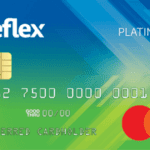If you own credit cards, it is essential to manage them responsibly. That means making sure all payments are made on time and paying off any outstanding balance before the due date each month.
It’s especially essential if you have a rewards card, where you could earn cash back, travel miles or other benefits without paying interest. Furthermore, ensure your credit utilization ratio stays below 30%.
Paying the Minimum
If you find yourself facing a financial crunch, it may be tempting to pay only the minimum amount due on your credit card. While this may help alleviate a short-term issue, it could also create longer-term issues.
Many card issuers require a minimum payment, which is usually between 2%-3% of the balance plus any interest and fees billed. You can easily locate this amount on your monthly statement.
You can check online to determine your minimum payment due, or call the card issuer to inquire.
Making minimum payments all the time can have a detrimental effect on your credit utilization ratio, which measures how much of available credit you use. This could lower your credit score and make it harder for you to obtain new credit in the future.
Paying in Full
Maintaining your credit cards responsibly requires paying in full at each billing cycle. Doing this prevents any additional interest or late fees from accruing on your balance.
Additionally, it can help you avoid a low credit utilization ratio. This is essential for credit scores as it shows you’re an accountable borrower who uses their available funds wisely.
If possible, pay off your credit card bill in full each month. Doing so will prevent you from carrying a high balance which could result in higher interest rates.
Furthermore, remember that paying your credit card bill in full can have a beneficial effect on both your credit report and score. By maintaining good habits with your cards, you may qualify for an increase in credit limit in the future, resulting in additional savings on interest charges over time.
Once you pay off your debt in full, it’s wise to write a “paid in full” letter to the lender or debt collector. This letter should confirm that all outstanding amounts have been settled and request they cease all collection efforts against you.
Making Payments on Time
Making timely payments is one of the best ways to establish a good payment history and boost your credit score. Additionally, it helps you avoid late fees, higher interest rates, and reduced credit limits.
When you receive your monthly statements, take time to review them carefully and confirm the amount due. A great way to guarantee timely payment is by setting up automatic payments.
If you have trouble remembering when your bills are due, mark them on a calendar or use an online bill pay service to stay organized.
If your billing date is out of sync with your pay schedule, reach out to the card issuer and inquire about extending it. Many creditors allow for this flexibility, so it may be worth giving it a shot.
Keeping a Close Eye on Your Spending
One of the best ways to manage your credit card is by keeping track of what you spend and where it goes. Doing this can help avoid overspending or costly interest fees. In fact, some credit cards even provide transaction alerts if they suspect fraudulent activity on your account.
To make your credit card management plan successful, set goals and ensure you meet them. One easy way to do this is creating a monthly budget with specific targets for different areas of life – like groceries or petrol. If you find that spending more than the budget suggests, it may be time to make some serious adjustments. You could change your phone provider or get an affordable energy bill; also try cutting back on some more frivolous expenses like eating out or going to the movies.




